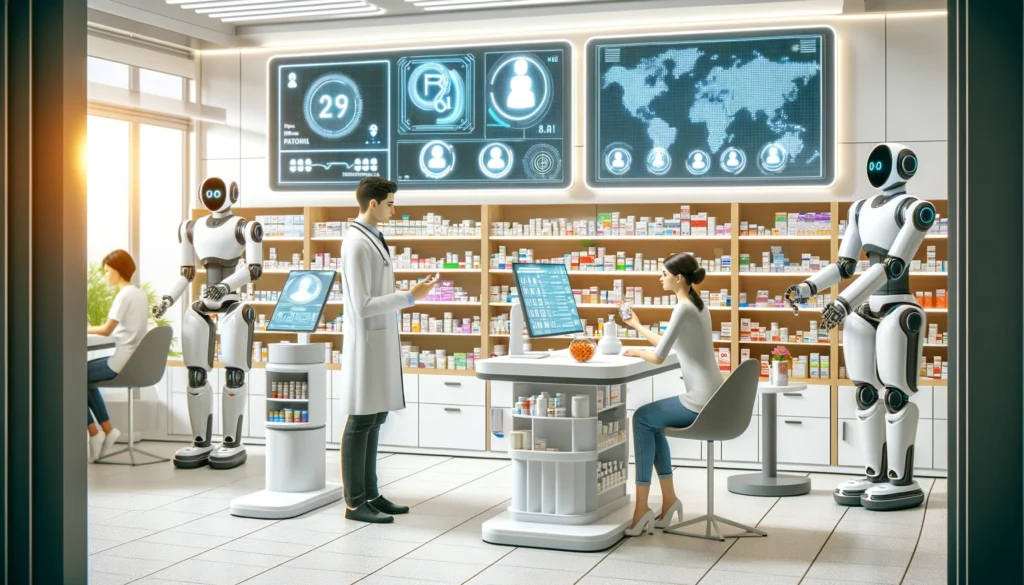Master in Pharmacy (M-Pharma)
Need Help
Need guidance on selecting the right course? Contact our support team for expert assistance today!
+91 8818036793
QUICK ENQUERY
Master in Pharmacy (M-Pharma)
Introduction:
Pharmacy is commonly referred to as the branch of health that is concerned with formulating, manufacturing, dispensing, and anything concerning the development and distribution of medicinal drugs and making sure that the medicines are safe for use and effective. To study pharmaceutics in detail, a student must graduate in the same field so that he has the basic knowledge to go further into a detailed study of pharmaceutics. During recent days, due to the eruption of coronavirus, there has been an increased demand for pharmacists and other specialists from the same field.

Humanity is endlessly looking forward toward the creation of new medicines and vaccines that can prevent and cure diseases to the fullest extent possible. Thus, students graduating with a master’s degree can not only obtain a better quality of education as compared to those who hold a bachelor’s degree but can also be in a better position to find a better job and accordingly lead a better life. The really exciting thing is that the world will never have enough of pharmacy professionals, and so pharmacy-related professions will always be in demand. Below are all the necessary pieces of information that an aspirant would require in order to pursue an Master’s in Pharmacy.
- Course: Master in Pharmacy (M-Pharma)
- Duration: 2 Year
- Eligibility: B.Sc in relevant Sub
Some important skills required to pursue the course are:
Communication skills
- Medicinal and scientific skills
- Analytical skills
- Persuasive skills
- Interpersonal skills
- Adaption ability
- Therapeutic skills
List of M Pharm Specializations:
For students choosing to study M Pharm as their postgraduate course, there are more than 15 specializations available. They can segregate and weigh their areas of interest before finalizing a particular course. There are plenty of choices. Following are some of the specializations available for M Pharm aspirants to choose from:
- Pharmaceutics
- Pharmacology
- Medicinal Chemistry
- Pharmacognosy
- Biopharmaceutics
- Drug Regulatory Affairs
- Pharmaceutical Biotechnology
- Clinical Pharmacy
- Drug Discovery and Drug Development
- Master of Public Health
- Pharmaceutical Administration
- Pharmaceutical Analysis and Quality Assurance
- Pharmaceutical market & Management
- Pharmaceutical Technology
- Pharmaceutics
- Pharmacy Practices
- Phytopharmaceuticals & Natural Products
- Quality Assurance
List of M Pharm Specializations:
Studying M.Pharm in good institutions has been opened up avenues for students beyond what merely studying B.Pharm can offer. A degree that is currently very much in demand, the M.Pharm specialists are needed in various fields. Following are some the most promising career opportunities that M.Pharm degree holders can look forward to:
Medical Transcriptionist- Their voice-recorded medical reports are occasionally transcribed by these professionals from health professionals. They check medication prescriptions for the patients as well.
- Academic Pharmacist- Includes the educating, training, and developing pharmacy students to produce a new breed of health professionals, working together with other educational teams. The ones in the university also participate in various research works.
- Lab Technician- The duties of laboratory assistants to discover new medication consist in active involvement within the laboratory, the conducting of raw technical and medical processes during experiments, and helping other research fellows.
- Drug Inspector- Assurance of safety, efficacy, and quality of a new medicine/drug; control of the entire process from the date of manufacture to the date of sale. They ascertain safety for human consumption through various tests for medicines/drugs/cosmetics.
- Work in production- Those who hold an M.Pharm degree have much hopeful prospects when it comes to job opportunities in the fields of manufacturing, whether in medicines or cosmetics.
- Pharmacognosy- Generally, it refers to applying pharmaceutical knowledge to natural medicine or therapeutic-products, and big companies like Dabur, Himalaya, hire people with an M.Pharm degree.
- Clinical Research- Drugs traditionally undergo extensive trials before they are released into practice, having found some merit for improvement or eventual rectifications for the new product. This is where an M.Pharm graduate takes on the profession of a clinical programmer focusing on laboratory management processes, scheduling adherence.
- Jobs in Pharmacology- New drug development, followed by the experiments on its function in the given environments. The pharmacologist may well look after the directions for use concerning dosage, side effects, etc., for either the new drug or the medicine.
- Pharmaceutical Sales Representative— A Pharmaceutical Sales Representative is actually a qualified healthcare specialist for the brands of their employer, representing them as subject matter expert on various drug products. They have several activities associated with the quality identification of an existing demand from a hospital or any healthcare facility and suggesting viable solutions to it through the best possible pharmaceutical products. Major tasks, therefore, lay up in serving customers through selling pharmaceutical items and addressing their demands. They would also be traveling quite a lot into the different zones assigned to them, presenting and giving education about the company’s drugs to hospitals and doctors’ offices.
- Quality Control Analyst— Quality Control Analysts in the pharmaceutical industry are primarily distanced with biologic, chemical, and physicochemical analyses of pharmaceutical products (biologics and drugs) and medical devices at all stages of the manufacturing process from raw materials to finished goods and to be part of the environmental monitoring programmes.

